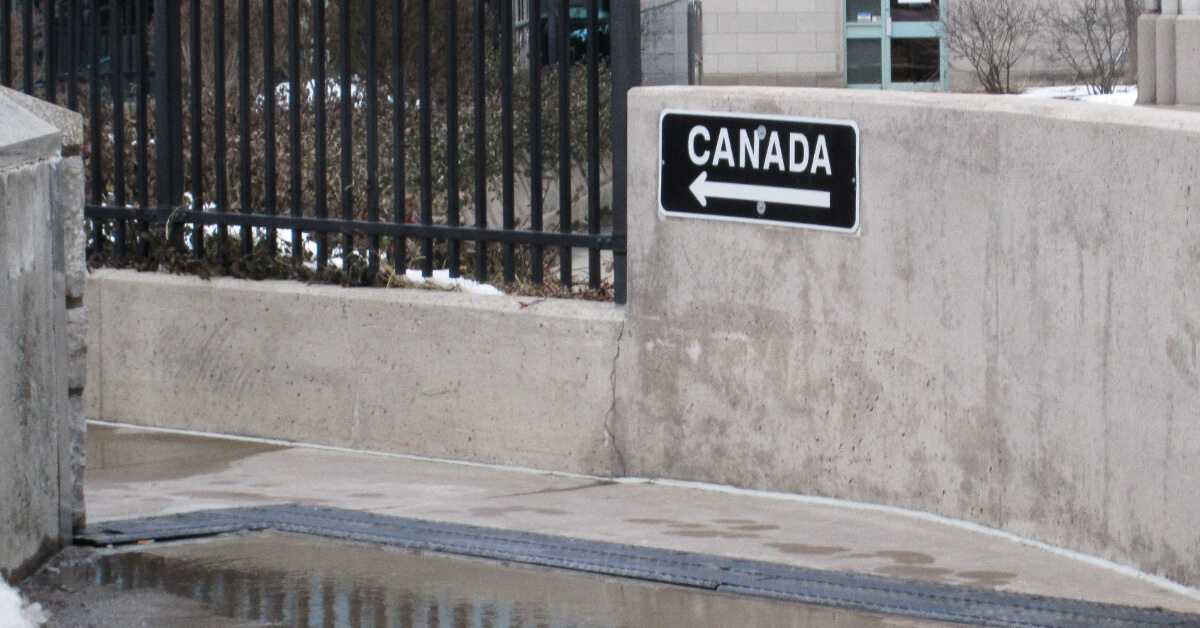
The Canada Strong Borders Act (Bill C-2) has sparked significant concern among immigrants and immigration lawyers across the country. While the government frames this legislation as necessary border security, the reality is far more complex for those navigating Canada’s immigration system.
In a recent radio interview, Kingwell Immigration Law founder, Daniel Kingwell, shared vital insights about how this bill will affect immigrants already in the system and those planning to come to Canada. His analysis reveals concerning gaps in the legislation that could create unprecedented uncertainty for applicants and permit holders.
If you need tailored advice as to your immigration status, our immigration lawyer in Toronto is a few simple clicks away. Book a consultation or get in touch with us!
Introduced on June 3, 2025, Bill C-2 represents the current government’s response to calls for strengthened border security. The legislation amends multiple federal laws, including the Immigration and Refugee Protection Act, Criminal Code, and Customs Act.
While much attention has focused on the bill’s privacy and data collection provisions, the immigration-specific changes will have immediate and profound effects on thousands of people seeking to build their lives in Canada.
According to Daniel Kingwell’s analysis, Bill C-2 introduces two fundamental changes that will reshape Canada’s immigration landscape.
The first major change grants the government sweeping new powers to cancel immigration documents and applications. This includes:
The most concerning aspect is the vague “public interest” standard. As Kingwell explained during his radio interview,
“The government wants people to do that if it’s in the public interest. That seems to be whatever the government wants it to mean.”
This means that even if you qualify for your application, pay your fees, and comply with all requirements, your application could still be cancelled. The same applies to those already holding valid permits – the government could cancel your status even if you’re in full compliance with your conditions.
The second major change will bar refugee claims for individuals who have been in Canada for more than one year. Currently, most people can make a refugee claim regardless of how long they’ve been in the country. This change will significantly limit options for those seeking protection.

The phrase “public interest” appears throughout Bill C-2, but it lacks a clear definition. This creates several problems for immigrants:
Without clear criteria, immigrants cannot know what actions or circumstances might trigger cancellation of their applications or permits. As Kingwell noted,
“People aren’t going to know really what’s happening if they qualify or if they have an application in process.”
The uncertainty makes it impossible for immigrants to take protective action. Even those doing everything correctly cannot guarantee their applications won’t be cancelled under this broad “public interest” authority.
The lack of defined standards raises concerns about the consistent application of these new powers. Different officers or changing political priorities could lead to vastly different interpretations of what serves the “public interest.”
Bill C-2 doesn’t exist in isolation – it’s part of a broader trend toward immigration restrictions that Kingwell has observed in his practice.
“We have a point system where we select highly skilled foreign workers,” Kingwell explained. “Because we’ve really tightened up the system, the points have become so high that people who are very, very skilled just don’t qualify.”
If you currently have an application in process with Immigration, Refugees and Citizenship Canada (IRCC), Bill C-2 creates several concerns:
Even if you submitted a complete application, paid all fees, and meet all requirements, your application could be cancelled under the “public interest” provision. You would have no recourse and no clear explanation for the cancellation.
The bill adds another layer of unpredictability to an already lengthy process. Spousal sponsorship applications, permanent residence applications, and other family reunification cases could face cancellation after years of processing.
Applicants invest significant money in government fees, medical exams, language tests, and legal representation. Bill C-2 provides no guarantee that these investments will be protected, even for qualifying applicants.

Those already in Canada with a valid immigration status face their own set of concerns under Bill C-2.
Even if you’re in full compliance with your permit conditions, the government could cancel your status in the “public interest.” This applies to:
Traditional immigration law operates on the principle that following the rules provides security. Bill C-2 undermines this by allowing cancellation regardless of compliance status.
As Kingwell noted, this creates a situation where people “are not going to know what’s going to be happening day to day.” This uncertainty affects major life decisions, from employment to housing to family planning.
Given Kingwell Immigration Law’s extensive Federal Court experience, we understand the importance of legal challenges to government overreach. Bill C-2’s broad language and lack of procedural safeguards may create grounds for judicial review.
The bill’s provisions may violate fundamental principles of procedural fairness that Canadian courts have consistently upheld. Previous Federal Court decisions have emphasized the importance of clear standards and fair processes in immigration matters.
The arbitrary nature of “public interest” cancellations could raise Charter of Rights and Freedoms issues, particularly regarding security of the person and fundamental justice principles.
Federal Court jurisprudence has established that immigration decisions must be reasonable and based on proper legal authority. The vague “public interest” standard may not meet these requirements.

While Bill C-2’s passage seems likely, there are steps you can take to protect your interests:
As Kingwell observed in his radio interview, the bill will likely pass because its broad language makes it difficult for people to understand how it will affect them specifically. This uncertainty actually works in the government’s favour politically, as it’s hard to organize opposition to unclear provisions.
However, the real test will come in implementation. How the government defines and applies “public interest” will determine whether Bill C-2 becomes a tool for managing legitimate concerns or a source of arbitrary decision-making.
The immigration system works best when everyone understands the rules. Clear standards allow immigrants to make informed decisions and immigration officers to apply consistent criteria.
Bill C-2’s “public interest” language fails this basic test. Without defined standards, the legislation creates more problems than it solves, potentially undermining confidence in Canada’s immigration system among the skilled workers and families the country needs to attract.
The Canada Strong Borders Act represents a significant shift in Canadian immigration law. Its broad language and undefined standards create unprecedented uncertainty for immigrants and applicants.
At Kingwell Immigration Law, we’ve successfully challenged immigration decisions at the Federal Court level and understand how to protect our clients’ interests when government policies change. Our experience with complex immigration litigation positions us to help navigate the challenges that Bill C-2 will create.
If you have concerns about how the Canada Strong Borders Act might affect your immigration status or application, contact Kingwell Immigration Law at 416.988.8853. We’ll provide clear guidance based on over 20 years of experience in Canadian immigration law.